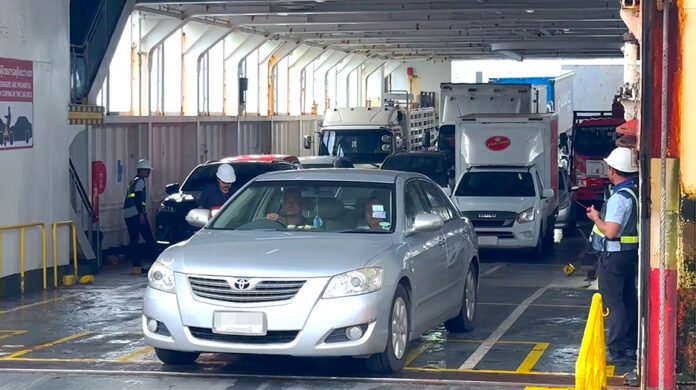A ferry operator serving Koh Samui is set to lift its ban on electric vehicles (EVs) next week, marking a significant shift in transportation policies for the popular Thai island. This decision comes after months of restrictions and debates surrounding the safety of EVs on ferries.
Safety Concerns Addressed
Enhanced Fire Safety Measures
The ferry company has taken steps to address safety concerns by installing specialized firefighting equipment on all routes from the mainland to the resort islands. This equipment includes fire-dousing kits specifically designed for EVs, firefighting suits, fire blankets, and extinguishers.
Policy Reversal
From Restriction to Accommodation
The ban on EVs had been in effect since November of the previous year, aimed at ensuring the safety of ships and passengers. However, hybrid vehicles were still permitted during this period. The upcoming policy change reflects a more inclusive approach to various vehicle types.
Industry Competition
Differing Approaches Among Operators
While one ferry operator had implemented the EV ban, its competitor, Seatran Ferry, continued to allow EVs on board with specific parking requirements. This disparity in policies sparked debates on social media platforms, highlighting the complexities of balancing safety concerns with customer needs.
EV Safety Statistics
Comparative Fire Risks
Despite public concerns, studies have shown that the fire risk for EVs is actually lower than that of internal combustion engine (ICE) vehicles. A study conducted for the Australian Department of Defence found a 0.0012% chance of a passenger EV battery catching fire, compared to a 0.1% chance for ICE cars.
Future Implications
Adapting to Changing Transportation Landscape
The decision to allow EVs on ferries again signifies an important step in adapting to the growing popularity of electric vehicles. This move may set a precedent for other transportation services to follow suit, potentially leading to more widespread acceptance of EVs in various modes of travel.








